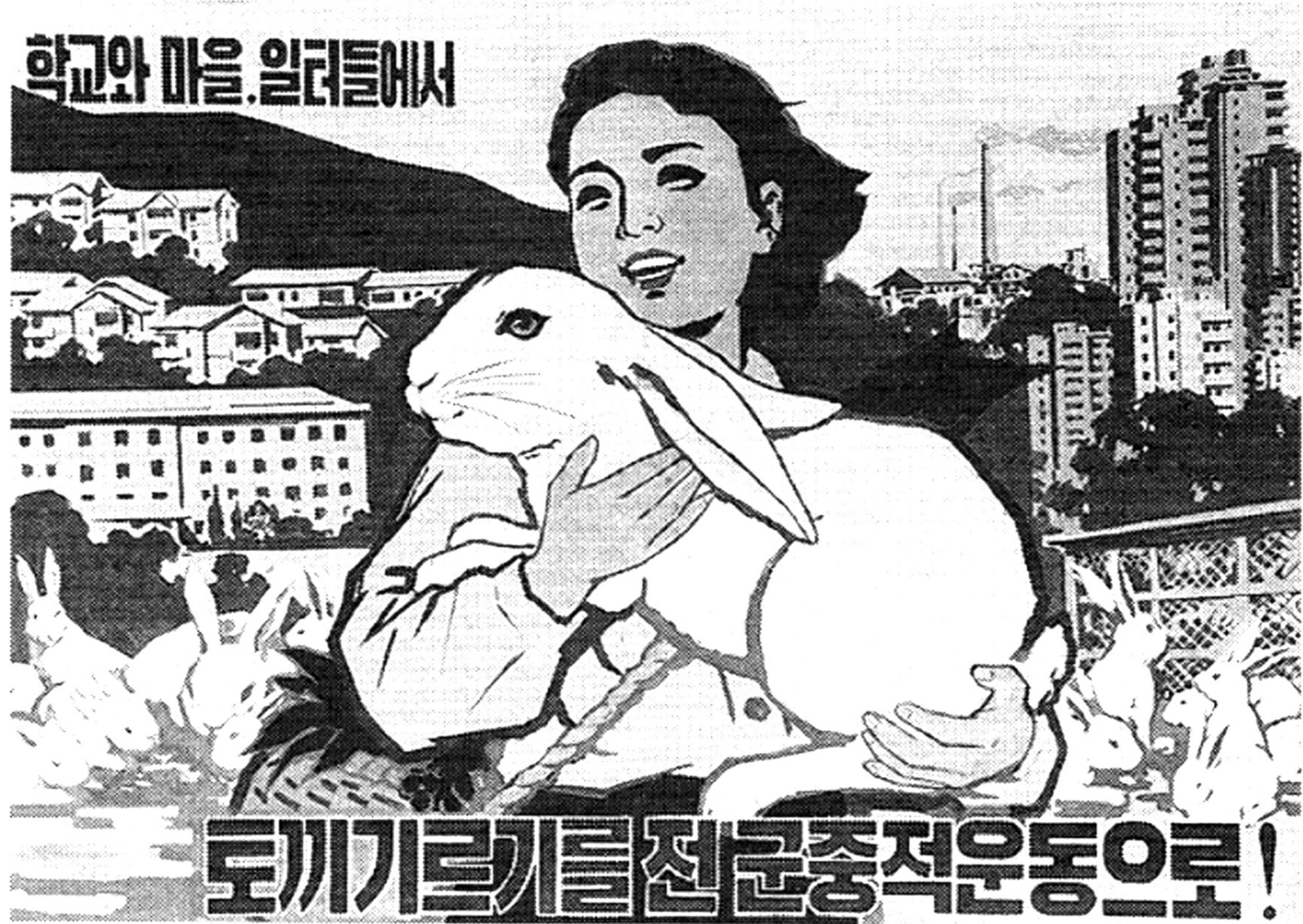
North Korea’s annual directive to state-run factories and companies to raise rabbits, pigs, and goats to improve citizens’ diets has sparked resentment among managers and workers who now have to contribute cash and labor while struggling under harsh economic conditions.
Every year in the chronically hungry and cash strapped country, companies that have no expertise in farming are ordered to devote manpower and resources to meat production, including by collecting money from workers to raise funds to build rabbit hutches and pig pens.
At a time when the North Korean economy has been decimated by the coronavirus pandemic on top of international nuclear sanctions, the workers have even less to offer to the meat scheme – which is only one of many programs that extract money and labor from the population for state projects and regime maintenance.
“These days, the Sinuiju fisheries office is in a hurry to finish the construction of a rabbit barn, a project that started early this month,” a resident of North Pyongan province, in the country’s northwest told RFA’s Korean Service.
“Even though the fisheries office has to catch fish, they are scrambling to prepare the rabbit barn because the authorities ordered state-run factories and companies to operate their own livestock operations,” said the source, who requested anonymity for security reasons.
Upon learning that they must donate money to the project, the workers began to raise their objections, according to the source.
“They are asking if it is really their job to raise rabbits. Soon they will have to feed the baby rabbits, and the workers are wondering if the authorities will pick their pockets to pay for that too,” said the source.
“The authorities are enforcing a livestock policy that is not realistic, but fisheries offices along the river and the sea are all starting to build rabbit barns. Even officials are critical of this absurd policy that increases burdens on the residents and has no effect on actual meat production,” the source said.
Another source, in South Pyongan province, north of the capital, told RFA that authorities tried the same plan last year. The South Pyongan program calls for raising pigs and goats.
“Authorities are strictly monitoring implementation of each factory’s meat production plan. This is why the factories are charging their workers to cover farming costs,” said the second source, who requested anonymity to speak freely.
“The party’s livestock policy, which for decades has made it compulsory for even young students to raise rabbits, should be eliminated,” the second source said.
Far from improving people’s livelihood, the scheme has only added to the burdens of people already suffering chronic economic hardship, the source added.
In this August 1999 photo from North Korea’s official Korean Central News Agency, distributed by Korea News Service, a poster encourages citizens to “Raise rabbits at school, your village and at your workplace and make it into a mass movement.” KCNA via AP
Since the 1970s, North Korea has required middle and high school students to raise two rabbits each year and offer them to the state, while farmers must fulfill the country’s annual meat purchase quotas.
Many will never taste the meat they produce as most is submitted to the authorities, with the remainder consumed or sold by corrupt officials, previous reports have said.
The meat collected by the central authorities for the official purpose of supplying the People’s Army is actually exported as a means to raise foreign currency.
According to the World Food Programme’s 2019 Needs and Priorities report, around 11 million North Koreans—44 percent of the population—are undernourished and in need of humanitarian assistance. North Koreans’ protein intake is particularly low, experts say.
“Food insecurity and the nutritional status of people in DPRK are strongly interrelated. Many people do not consume an adequately diverse diet, reinforcing the cycle of undernutrition. In particular, young children and pregnant and lactating women suffer from chronic malnutrition because their diets lack vitamins, minerals, proteins and fats,” the report said.
Reported by Hyemin Son for RFA’s Korean Service. Translated by Leejin Jun. Written in English by Eugene Whong.